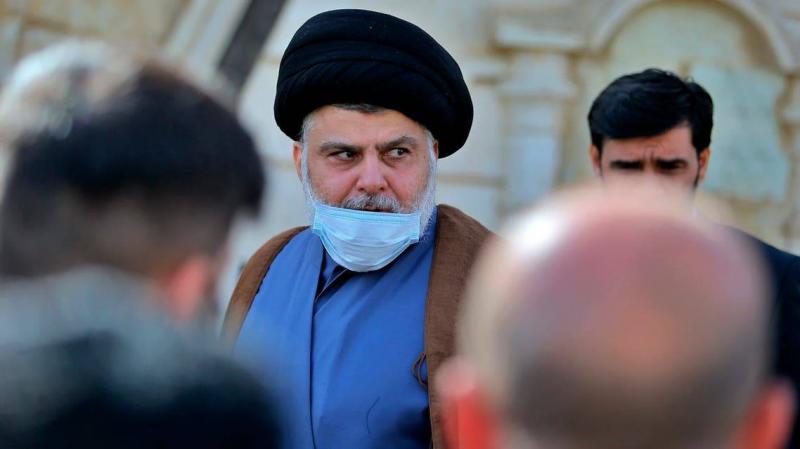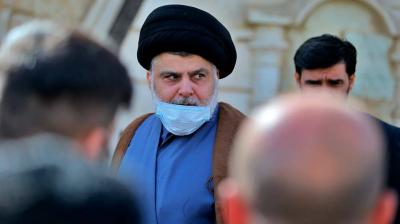A call by one of the followers of the reference Mahmoud al-Sarkhi to demolish the graves of Shia imams has ignited tensions in Babil Province, south of Baghdad, as Iraqi forces launched a wide campaign to arrest Sarkhi's supporters. The tension began when Sarkhi's representative in Babil Province called for the demolition of the Shia imams' graves, deeming their existence a violation of Islamic religion, which enraged religious groups and local communities.
Quickly, the leader of the Sadrist Movement, Muqtada al-Sadr, intervened in this dispute, giving Sarkhi three days to disavow his representative in the Friday prayer sermon in Babil, Ali al-Masoudi, threatening legal and customary actions if he did not. In his message, Sadr stated that "some who follow Sarkhi's teachings are attempting to inject deviant doctrines into the sect, the latest being from an Imam acting on their behalf in Babil, who called for the demolition of graves."
Following this message, Iraqi security forces arrested cleric al-Masoudi, an Imam of the Al-Fath Al-Mubeen Husseiniyah, while dozens of Sadr's supporters protested outside the Husseiniyah on Monday evening in response to Masoudi's sermon. For its part, the Babil Police issued a decision to close all Sarkhi offices in the city to prevent "security chaos."
The situation escalated further when an explosive device detonated near the Al-Mujtaba Husseiniyah, affiliated with the Sarkhists in Al-Musayyib, also in the same province, although no injuries were reported. This raised concerns about potential clashes or armed conflict between the two groups. Angry protesters loyal to Muqtada al-Sadr burned one of the Husseiniyas affiliated with Sarkhi in Al-Qasim, Babil. A video showed dozens of Sadr's supporters storming the Husseiniyah while flames engulfed it inside and in its courtyard.
This is not the first time clashes and persecution against Sarkhi's reference and his supporters have occurred, with similar incidents happening in previous years that often escalated into armed confrontations. These developments unfold amidst a backdrop of political turmoil due to delays in forming the Iraqi government and intensified political disputes among major blocks, as well as the security challenges Iraq faces, such as the threats of ISIS and armed groups.
Simultaneously, Iraqi security forces launched a broad campaign to track Sarkhi's followers across several provinces in the country. The Ministry of Interior stated in a statement: "The Intelligence Agency has begun a wide campaign to pursue members of an extremist religious movement that seeks to insult religious symbols and Islamic rituals and demolish sacred shrines." It added that "based on accurate intelligence, intelligence officers managed to apprehend six suspects from this extremist movement attempting to sow discord among our unified Iraqi people in Basra, Karbala, and Maysan provinces."
Sarkhi has a history of confrontations with Iraqi security forces and members of armed groups. In 2014, violent confrontations occurred in Karbala due to Sarkhi's stance on forming the Popular Mobilization Forces to confront ISIS, which he viewed as Iranian militias. Sarkhi has also harshly criticized Shia reference Ali al-Sistani, considering him a face of Iranian expansion in the country, and rejected a fatwa from al-Sistani regarding the entry of the United States into Iraq. The fighting at that time lasted several days in Karbala, during which Iraqi forces used heavy weapons and helicopter support, bringing in additional forces from Baghdad, resulting in casualties among Iraqi security personnel and about 30 members of the "Army of Hussein."
Media reports indicate that Sarkhi's followers and supporters are concentrated in the provinces of Diwaniya, Najaf, Karbala, Nasiriyah, and Basra, numbering around 30,000 individuals, including members of the "Army of Hussein." Sarkhi is considered a moderate Shia cleric, although many Shia label him as "deviant."




